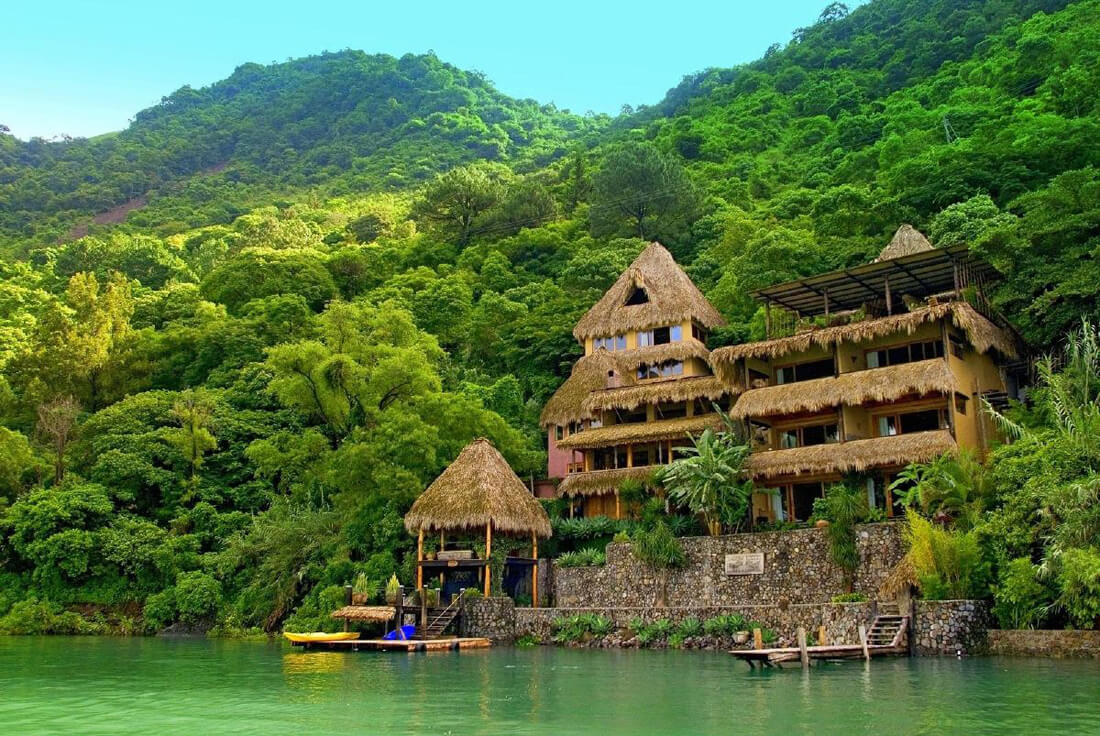The International Year of Sustainable Tourism for Development (proclaimed by the United Nations) is the ideal time to reflect on how you can plan a trip in the interests of the planet and the people living on it.

1. Bears in Alaska
One transatlantic flight leaves the same carbon footprint as a car ride for a year, so you can think of traveling closer to home. For example, 355 million people in the US and Canada can go to Alaska, which offers many environmentally friendly adventures. To see three species of bears living in America, in particular, the polar bear, whose arctic habitat is under increasing threat, is not only exciting but also informative. But the spectacle is worth it for the inhabitants of all other countries.
2.Whales and dolphins in the Azores
Observation of whales and dolphins, popping out of the water and frolicking in their natural habitat, is perhaps the best acquaintance with the wildlife. In the waters of the Azores, there are 27 species of cetaceans, so here you will see them.
3. Sweden
Sweden, recognized as the most environmentally friendly country in the world, virtually guarantees that the negative impact of your trip on the environment will be minimal. You are waiting for more than 250 hotels and hostels marked Nordic Eco-label (which indicates compliance with environmental standards), as well as hundreds of tours that received an environmental certificate from Nature’s Best. Ride along Gothenburg on bicycles, explore the city’s national park in Stockholm, and between the business, enjoy dishes from local products.
4. Nepal
The concept of “traveling environmentally” also extends to spending your tourism capital as sensibly as possible. The earthquake with a magnitude of 7.8 points, which occurred in Nepal in April 2015, destroyed the country’s tourism industry. But now, when most of the routes are restored, and the lives of many villages depend on the income received from tourists, it’s time to come here.
5. Gansbay, South Africa
Gansby recently was just a fishing village, and now offers a multitude of community-friendly, ecotourism-related projects and activities: hiking, kayaking, off-road bike riding, whale watching and much more. Grutbosch’s private nature reserve has become a real celebrity receiving rewards for reducing poverty and saving the finbosh.
6.Hotels Cayuga Collection, Costa Rica
Costa Rica, the world leader in environmental responsibility, is working to become the first zero-carbon country by 2020. Ecologically safe and environmentally friendly tours complement the mass of eco-friendly hotels. It is worth looking into one of the eight wonderful, environmentally friendly Cayuga Collection located in incredible corners of the protected nature of Costa Rica.
Look for hotels accredited by Certification for Sustainable Tourism, they must comply with the standards regarding the use of natural, cultural and public resources.
7. Houses of local residents
Overnight stay with a local family is a great way to learn about the population of the country and to thank the locals, as for them this is the only way to get profit from tourists. The catch is to make sure that your accommodation will benefit in the long run. Fortunately, many eco-tourism-oriented companies organize everything for you.
8. The choice in favor of ethical communication with elephants
Riding an elephant was once an almost compulsory entertainment for tourists coming to Thailand. But today there was convincing evidence confirming the opinion of specialists that walks on elephants and shows are harmful to these good-natured giants. Fortunately, an increasing number of Thai nature reserves offer tourists the opportunity to communicate with elephants so that it is safe for both sides.
9. Contribution to the support of ecologically ethical restaurants
From “farm to table” to reducing the amount of food and waste discarded, the beginnings introduced by restaurants around the world benefit the planet both locally and globally. Leading cities in this area are Seattle with its recyclable food containers and Copenhagen, where many environmentally friendly restaurants are located.
10. A conscious refusal to use plastic
Many of the most popular tourist places in the world can not cope with the volume of debris left by local residents, not to mention tourists. According to rough estimates, about three million plastic bottles are used on the Indonesian island of Bali every month. Refill with water reusable jars, instead of buying plastic bottles, use fabric bags for shopping and do not use plastic straws for drinks.
